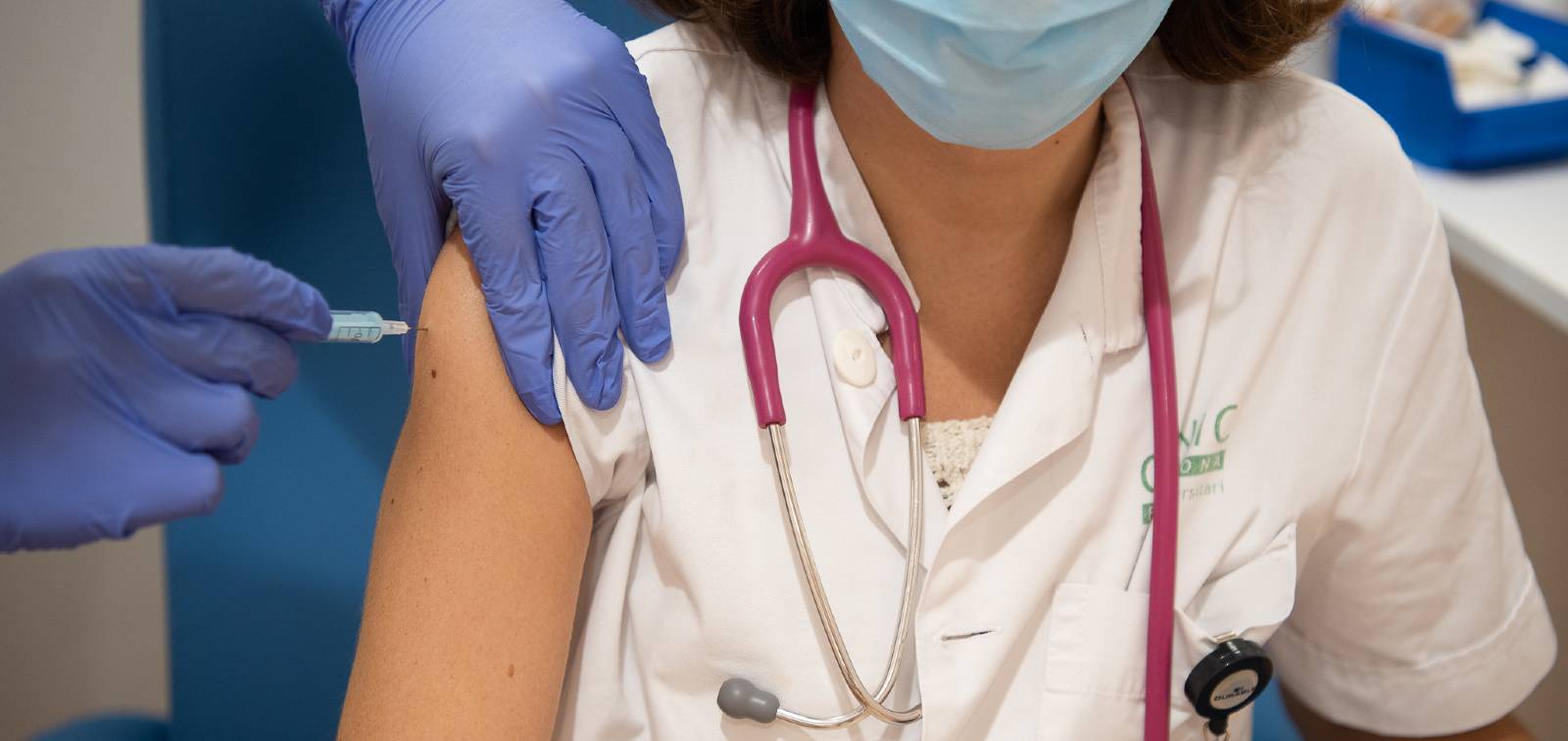Antibodies Induced by the Original COVID-19 Vaccines Are Good Predictors of Protection against Omicron Infections
New results from a cohort of Catalan healthcare workers support prioritising boosters for people who have not been recently infected
08.03.2024
Antibodies produced in response to COVID-19 vaccines targeting the original variant, as well as those generated through a combination of vaccination and infection, are valid correlates of protection against Omicron, despite its ability to better evade immunity. This is the main conclusion of a cohort study led by the Barcelona Institute for Global Health (ISGlobal) with the collaboration of the Daniel Bravo Andreu Private Foundation (FPDBA). The findings, published in BMC Medicine, also support the need to prioritise booster vaccinations in people without recent infections.
The protection provided by COVID-19 vaccines depends not only on the duration of vaccine-induced immunity, but also on the emergence of new viral variants. Before Omicron, it became clear that the level of vaccine-induced antibodies correlated well with protection against infection. “However, it was not clear whether this would hold true with Omicron, which is very different from the earlier variants,” explains Carlota Dobaño, Head of the Immunology Group at ISGlobal and co-senior author of the study together with colleague Gemma Moncunill. It also wasn’t clear whether hybrid immunity, resulting from previous infection plus vaccination, would provide additional protection against the new variant - an important element for informing public health strategies and for optimising individual protection. This work is part of END-VOC, a European project to monitor the impact of emerging COVID-19 variants by using data from well-established cohorts across the world.
In this study, Dobaño and her team assessed the antibody response to the Spike (S) and Nucleocapsid (N) proteins of Omicron BA.1 in a cohort of healthcare workers from the Hospital Clinic (SEROCOV) that they have been following since the early days of the pandemic. They looked at IgG and IgA antibody levels in these workers, their “immune history” (whether they had been previously infected or had received a booster dose), and correlated this with protection against Omicron infections. The study involved 393 participants, of whom 287 had received a booster (or third dose) one year before, and 243 had been previously infected with SARS-CoV-2.
Protection associated with higher antibody levels
The results show that higher levels of anti-Spike IgG and IgA to the original (Wuhan), Delta and Omicron BA.1 variants were associated with protection against infection by Omicron. “Despite the higher ability of Omicron variants to evade antibody immunity, we show that antibodies elicited by vaccines against the original variant and prior infections are still a good predictor of protection, even against infections by BA.2 and BA4.5, which were the subvariants circulating at the time,” says Moncunill.
And with recent infection
Previous SARS-CoV-2 infection was also associated with greater protection against infection by Omicron, although this effect diminished over time. Recent infections provided the strongest protection, regardless of antibody levels. The authors point out that this may be due not only be a matter of time, but also of the infecting variant, as the most recent infections were with Omicron, while older infections were with pre-Omicron variants.
Those who received a different mRNA vaccine as booster were better protected against infection than those who received the same vaccine as the first two doses. “These data confirm that heterologous vaccination works better, even within mRNA vaccines,” adds Carla Martin Perez, first author of the study. However, the protective effect of the third dose against infection was not evident beyond three months.
“Recent infection was the strongest factor associated with protection against Omicron in our cohort,” concludes Dobaño. A protection where antibody levels play an important but partial role.
This information may help to optimise vaccination strategies and to prioritise booster doses for those who have not been recently infected.
Reference
Martin Perez C, Aguilar R, Jiménez A et al. Correlates of protection and determinants of SARS-CoV-2 breakthrough infections one year after third dose vaccination. BMC Med. 2024. doi:10.1186/s12916-024-03304-3.



